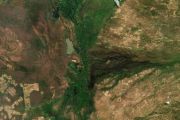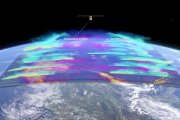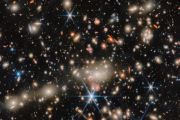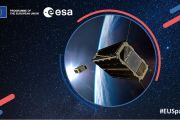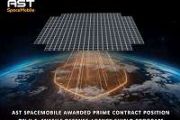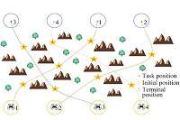
Copernical Team
NASA's moon rocket, spacecraft return for repair after scrubbed test
 NASA's Space Launch System rocket and Orion spacecraft for the Artemis I mission arrived safely at Kennedy Space Center's Vehicle Assembly Building in Florida, the agency said Tuesday.
The SLS rocket and Orion spacecraft arrived at the assembly building after a 10-hour journey from launch pad 39B that began Monday morning, NASA confirmed.
Crews will now extend the work platforms
NASA's Space Launch System rocket and Orion spacecraft for the Artemis I mission arrived safely at Kennedy Space Center's Vehicle Assembly Building in Florida, the agency said Tuesday.
The SLS rocket and Orion spacecraft arrived at the assembly building after a 10-hour journey from launch pad 39B that began Monday morning, NASA confirmed.
Crews will now extend the work platforms SpaceX set to launch its latest crew to ISS for NASA
 Days after a SpaceX Dragon capsule crewed by wealthy adventurers splashed down off Florida's coast, another is set to launch Wednesday, this time for a NASA mission to the International Space Station.
With weather appearing favorable, the Crew-4 mission should blast off from the Kennedy Space Center at 3:52 am (0752 GMT), carrying Americans Kjell Lindgren, Bob Hines and Jessica Watkins, as w
Days after a SpaceX Dragon capsule crewed by wealthy adventurers splashed down off Florida's coast, another is set to launch Wednesday, this time for a NASA mission to the International Space Station.
With weather appearing favorable, the Crew-4 mission should blast off from the Kennedy Space Center at 3:52 am (0752 GMT), carrying Americans Kjell Lindgren, Bob Hines and Jessica Watkins, as w NASA gives green light for OSIRIS-REx spacecraft to visit another asteroid
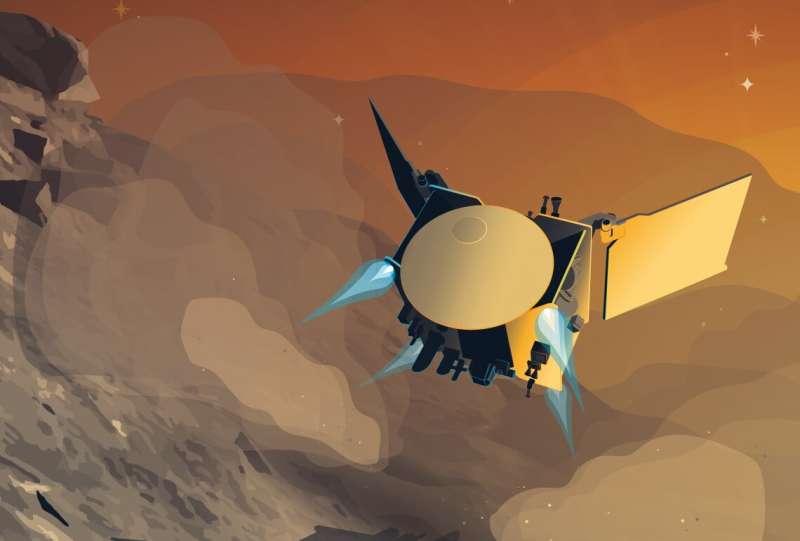
NASA's OSIRIS-REx spacecraft will swing by Earth to deliver a sample from asteroid Bennu on Sept. 24, 2023. But it won't clock out after that.
NASA has extended the University of Arizona-led mission, which will be renamed OSIRIS-APEX, to study near-Earth asteroid Apophis for 18 months. Apophis will make a close approach to Earth in 2029.
The University of Arizona will lead the mission, which will make its first maneuver toward Apophis 30 days after the OSIRIS-REx spacecraft delivers the sample it collected from Bennu back in October 2020. At that point, the original mission team will split—the sample analysis team will analyze the Bennu sample, while the spacecraft and instrument team transitions to OSIRIS-APEX, which is short for OSIRIS-Apophis Explorer.
China plans system to take out asteroids hurtling toward Earth
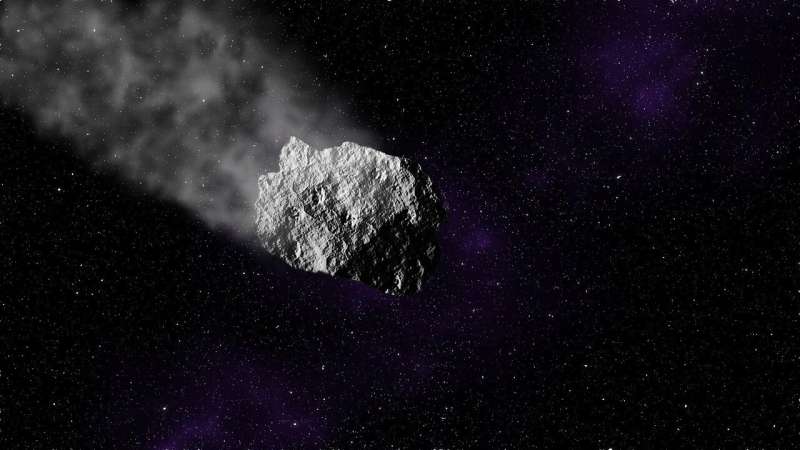
China plans to develop a system for monitoring asteroids that pose a threat to earth, highlighting the nation's growing ambitions for its space program.
The country will also explore ways for taking out asteroids that endanger the planet, Wu Yanhua, deputy director of the China National Space Administration, said in a TV interview, according to the official Xinhua News Agency.
To test the system, China intends to send a spacecraft toward an asteroid in 2025 or 2026 to study it and then change its course, Wu added, without providing details on how that would work.
The Asian nation has pushed forward with plans for its space program in recent years. In January, Wu said Beijing signed an agreement with Russia to build a base on the moon, and last year a Chinese moon mission returned to earth with lunar samples.
China's aspirations for its space program have ramped up tensions with the U.S. The two sides have sparred over SpaceX satellites that Beijing said came dangerously close to its space station, prompting the government of the Asian nation to criticize SpaceX in a memo to a United Nations committee that oversees operations in space.
Living Planet Symposium: apply for student grants
Living Planet Symposium: apply for student grants
Agenda and Registration link now live for ESA Careers Week!

ESA Careers Week is just around the corner and we are excited to see you during this four-day virtual event from 2 - 5 May. Curious to know what’s on the agenda and how to register for the fair? Keep reading!
Vega-C: Launcher integration begins for inaugural flight VV21
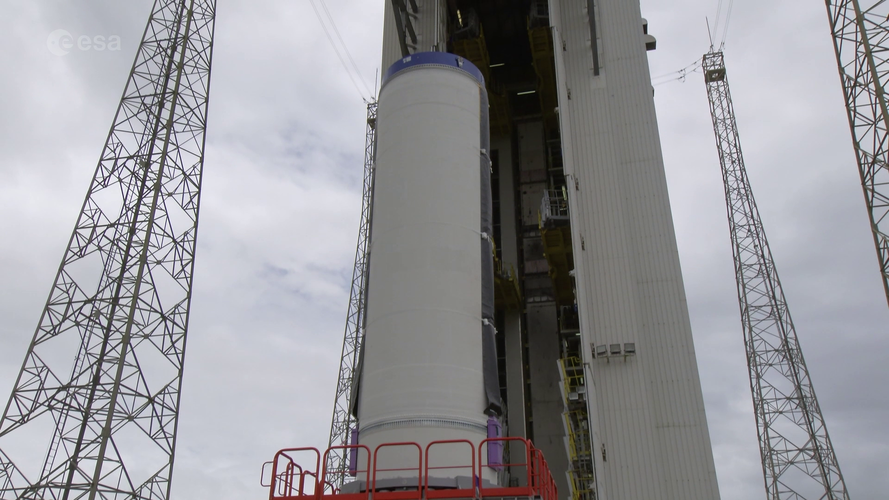
Launcher integration for the inaugural flight of Vega-C began with the P120C solid-fuel first stage being delivered to the Vega Launch Zone (Zone de Lancement Vega, or ZLV) at Europe's Spaceport in Kourou, French Guiana on 15 April 2022. P120C will also fly on Ariane 6, with two or four units serving as boosters depending on mission requirements.
The interstage segment to join the P120C first stage with the Z40 second stage followed on the 22nd.
For flight VV21, the principal payload will be LARES-2, a scientific mission of the Italian Space Agency (ASI). Also onboard will be six European
Watch live: Crew-4 liftoff to the International Space Station
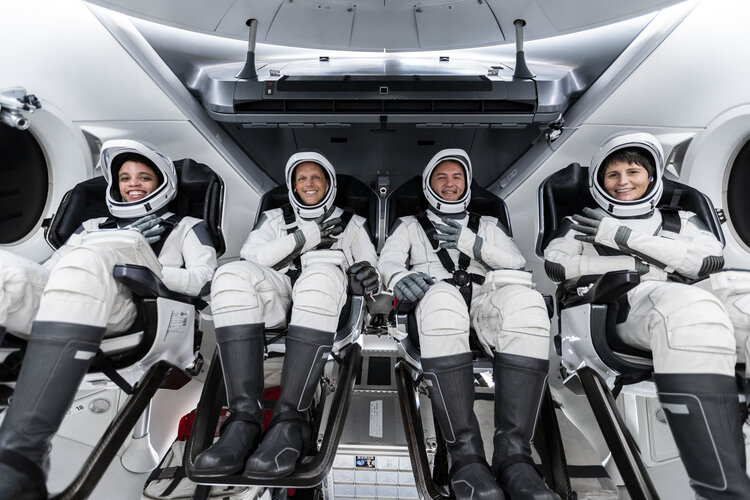
Tune in to ESA Web TV this Wednesday 27 April to watch ESA astronaut Samantha Cristoforetti begin her journey to the International Space Station. Launch is scheduled at 09:52 CEST (07:52 GMT), and live streaming will start at 06:00 CEST (05:00 GMT).
Keeper of the winds shines on
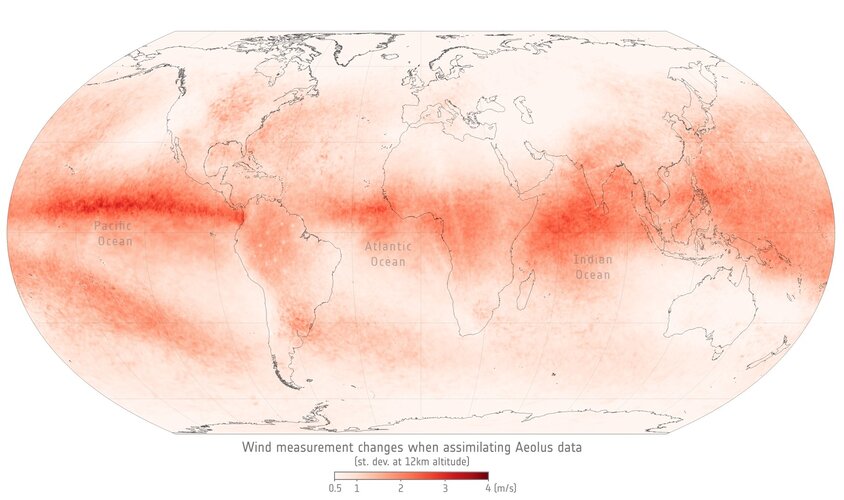
Launched back in 2018, Aeolus has outlived its 36-month in-orbit design life – but going above and beyond, it continues to deliver excellent data. This shows that there’s life yet in the satellite, meaning ESA’s wind mission is now expected to continue shining a light on the wind for another year.
Penn State to lead study of radiation effects on electronics
 Electronics employing wide bandgap semiconductors promise better resistance against radiation damage over conventional silicon-based electronics, according to a newly funded national collaboration led by Penn State. To better predict and mitigate radiation-induced damage of wide bandgap semiconductors, the U.S. Department of Defense awarded the team a five-year, $7.5 million Defense Multidiscipl
Electronics employing wide bandgap semiconductors promise better resistance against radiation damage over conventional silicon-based electronics, according to a newly funded national collaboration led by Penn State. To better predict and mitigate radiation-induced damage of wide bandgap semiconductors, the U.S. Department of Defense awarded the team a five-year, $7.5 million Defense Multidiscipl 

